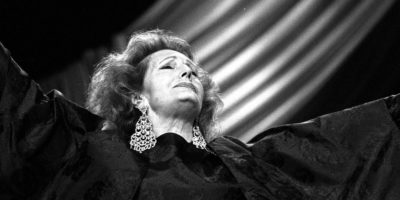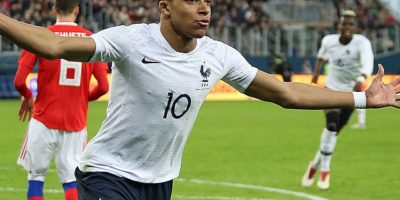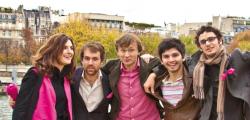
Hugo Chavez photo cut 27-06-2008.jpg Photo by Marcello Casal Jr./Abr – Wikimedia Commons
Top 10 Sensational Facts about Hugo Chavez
Hugo Rafael Chavez Frias was born on 28 July 1954, he was a Venezuelan politician who made his up to the presidential seat from 1999 until his death in 2013. Hugo was also the leader of the Fifth Republic Movement political party from its foundation in 1997 until 2007. Hugo was born into a middle-class family in Sabaneta, Barinas, he became a career military officer and, after becoming dissatisfied with the Venezuelan political system.
Hugo led the MBR-200 in its unsuccessful coup d’etat against the Democratic Action government of President Carlos Andres Perez in 1992, for which he was imprisoned. Hugo was pardoned from prison two years later, he founded the Fifth Republic Movement political party.
During his presidency, Venezuela experienced democratic backsliding, he suppressed the press, manipulated electoral laws, and arrested and exiled government critics. Chavez’s presidency saw significant increases within the police force and government. The people of Venezuela saw his presidency as a part of the socialist Pink Tide sweeping Latin America.
For more information about other famous people, click here.
1. He had an Interesting Early Life

Hugo Chavez in Brazil-1861.jpeg Photo by Victor Soares – ABr – Wikimedia Commons
Hugo was born the second of seven children. His childhood was supposed poverty was disputed as he possibly changed the story of his background for political reasons. He attended the Julian Pino Elementary School, Hugo was particularly interested in the 19th-century federalist general Ezequiel Zamora.
Since there was no high school in the area, his parents sent Hugo and his brother Adan to live with their grandmother Rosa who lived in a lower middle class. They attended Daniel O’Leary High School in the mid-1960s.
2. Hugo’s Interesting Military Career
At the age of 17, Hugo studied at the Venezuelan Academy of Military Sciences in Caracas, following a curriculum known as the Andres Bello Plan. The new curriculum encouraged students to learn military routines and tactics and a wide variety of other topics. While he lived in Caracas, he began to get involved in activities outside of military school.
Hugo also wrote poetry, fiction, drama, and painting. He also became interested in the Marxist revolutionary Che Guevara, after he read his memoir The Diary of Che Guevara. Hugo was selected to be a representative in the commemorations for the 150th anniversary of the Battle of Ayacucho in 1974.
Read more about other famous people here.
3. His Life in the Military was Controversial

Investiture 1st Year Cadets of the Military Academy Commander in Chief Hugo Chávez Frías (AMHCH) of the UMBV (2019).jpg Photo by MusicologoVzla – Wikimedia Commons
After graduation, Hugo was stationed as a communications officer at a counterinsurgency unit in Barinas. In 1977, Hugo was transferred to Anzoategui where they were involved in battling the Red Flag Party. After he intervened to prevent the beating of an alleged insurgent by other soldiers.
Hugo founded a revolutionary movement within the armed forces in 1977. He had hoped that one day he could introduce a leftist government to Venezuela. Hoping to gain an alliance with civilian leftist groups in Venezuela, Hugo set up clandestine meetings with various Marxists.
4. Hugo’s Involvement in The Bolivarian Revolutionary Army

Hugo Chávez y Cilia Flores.jpg Photo by Miguel Arturo González Márquez – Wikimedia Commons
Hugo went on to form a new secretive cell within the military five years after the ELPV which is also known as the Venezuelan People’s Liberation Army. The Bolivarian Revolutionary Army-200 was later redesignated the Revolutionary Bolivarian Movement-200. Hugo was inspired by Simon Bolivar, Simon Rodriguez, and Ezequiel Zamora who were known as the Three Roots of the Tree.
In 1984, the movement gained multiple new recruits which caused some senior military officers to become suspicious of Hugo. He was later reassigned to take command of the remote barracks at Elorza in Apure State. This was to make sure that he would not be able to gain any fresh new recruits from the academy.
5. The Coup Attempt of 1992
Carlos Andres Perez was elected president in 1989. Even though he had promised to oppose the International Monetary Fund’s policies, he enacted economic policies which were supported by the IMF. In order to stop widespread looting, he initiated Plan Avila which was a military contingency plan by the Venezuelan Army to maintain public order. The members of Hugo’s MBR-200 movement allegedly participated but Hugo didn’t.
During his time on the sidelines, Hugo began preparing for a military coup d’etat known as Operation Zamora. The plan involved members of the military overwhelming military location and communication installations. Later, they would establish Rafael Caldera in power once Carlos Perez was captured and assassinated. Initially, the plan was meant to be established in December, but Hugo delayed the MBR-200 coup till 4 February 1992.
7. He Planned a Coup Plan that Failed
Even though Hugo and other members of the coup had spent years of planning, it quickly encountered trouble since Hugo commanded the loyalty of less than 10% of Venezuela’s military. After numerous betrayals, and unforeseen circumstances, Hugo and a small group of rebels found themselves hiding in the Military Museum.
Eventually, after the plan had gone completely out, of course, Hugo gave himself up to the government and called on the remaining coup members to lay down their arms. Most of the less fortunate Venezuelans began to see Hugo as someone who stood up against government corruption.
Hugo was arrested and imprisoned at the San Carlo military stockade. It has been noted that Hugo was wracked with guilt and felt responsible for the failure of the coup. Pro-Chavez demonstrations outside San Carlos led to his transfer to Yare Prison. In November of the same year, there was another unsuccessful coup against the government.
In result to the fighting during the coups resulted in the deaths of at least 143 people, which caused Carlos Perez to be impeached a whole year later. He was charged with malfeasance and misappropriating funds.
For more information about other famous people from Venezuela, click here.
8. His Personal Life is Fascinating
Hugo’s first wife was Nancy Colmenares, she was a woman from a poor family in Hugo’s hometown of Sabaneta. Their marriage lasted for 18 years during which she had three children namely, Rosa Virginia, Maria Gabriela, and Hugo Rafael. The couple separated after the 1992 coup attempt during which he had an affair with historian Herma Marksman. Hugo’s second wife was journalist Marisabel Rodriguez de Chavez, they separated in 2002 and divorced in 2004.
When Hugo was released from prison, he initiated affairs with women that were his followers. Throughout both marriages, there were allegations were also made that Hugo was a womanizer. It was claimed that he had encounters with actresses, journalists, ministers, and ministers’ daughters.
One retired aide shared that while Hugo was married to Marisabel, he participated in liaisons with women and gave them gifts. His aides believed that most of the women he slept with bore children from Hugo.
Read more about other famous people here.
9. His Religion and Spirituality Life
Hugo was a Catholic, at one point in his life, he intended to become a priest. Hugo saw his socialist policies as having roots in the teachings of Jesus Christ and he publically used the slogan Christ is with the Revolution. Over the course of his presidency, he became increasingly open to discussing his religious views. Hugo interpreted Jesus as a Communist, in general, he was a liberal Catholic.
Even though he was a Catholic, He would declare his belief in Darwin’s theory of evolution due to the fact that he believed God couldn’t create man from the ground. Other than that, he showed syncretistic practices such as the worship of the Venezuelan goddess Maria Lionza.
10. He Had an International Recognition as a Leader

Hugo Chávez and Dilma Rousseff in Brasília 2011.jpg Photo by Dilma Rousseff – Wikimedia Commons
In 2005 and 2006, the United States-based Time magazine included Hugo among their list of the world’s 100 most influential people. It noted the spreading of his anti-globalization efforts and anti-US sentiment throughout Latin America. In 2006, a list compiled by the British magazine New Statesman voted him 11th on the list of Heroes of our time.
The streets of Al-Bireh and Moscow were named after Chavez. In addition, in the Belarusian capital Minsk, a park was named after Hugo on 18 October 2014.
Read more about other famous people here.
Planning a trip to Paris ? Get ready !
These are Amazon’s best-selling travel products that you may need for coming to Paris.
Bookstore
- The best travel book : Rick Steves – Paris 2023 – Learn more here
- Fodor’s Paris 2024 – Learn more here
Travel Gear
- Venture Pal Lightweight Backpack – Learn more here
- Samsonite Winfield 2 28″ Luggage – Learn more here
- Swig Savvy’s Stainless Steel Insulated Water Bottle – Learn more here
Check Amazon’s best-seller list for the most popular travel accessories. We sometimes read this list just to find out what new travel products people are buying.










